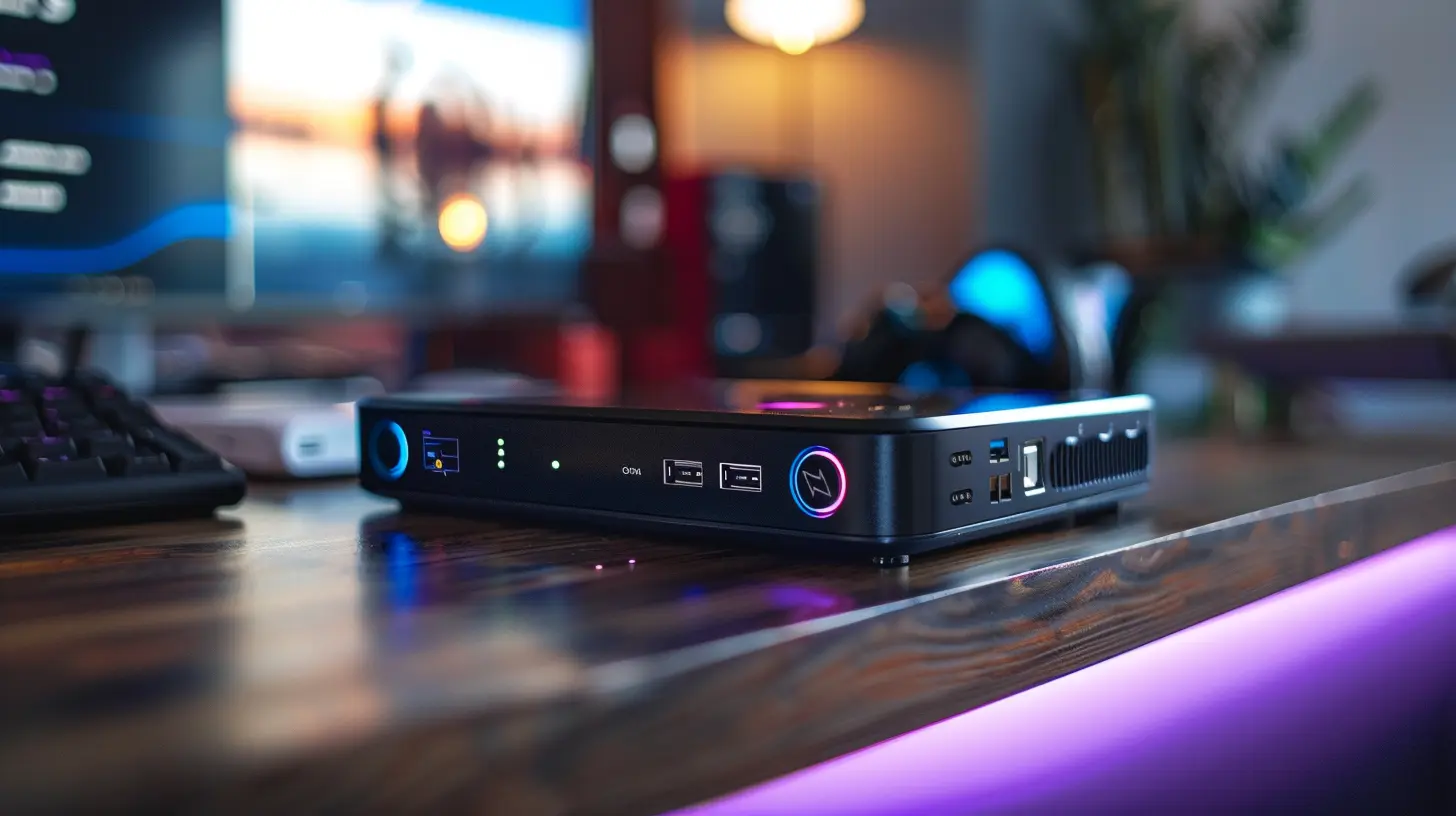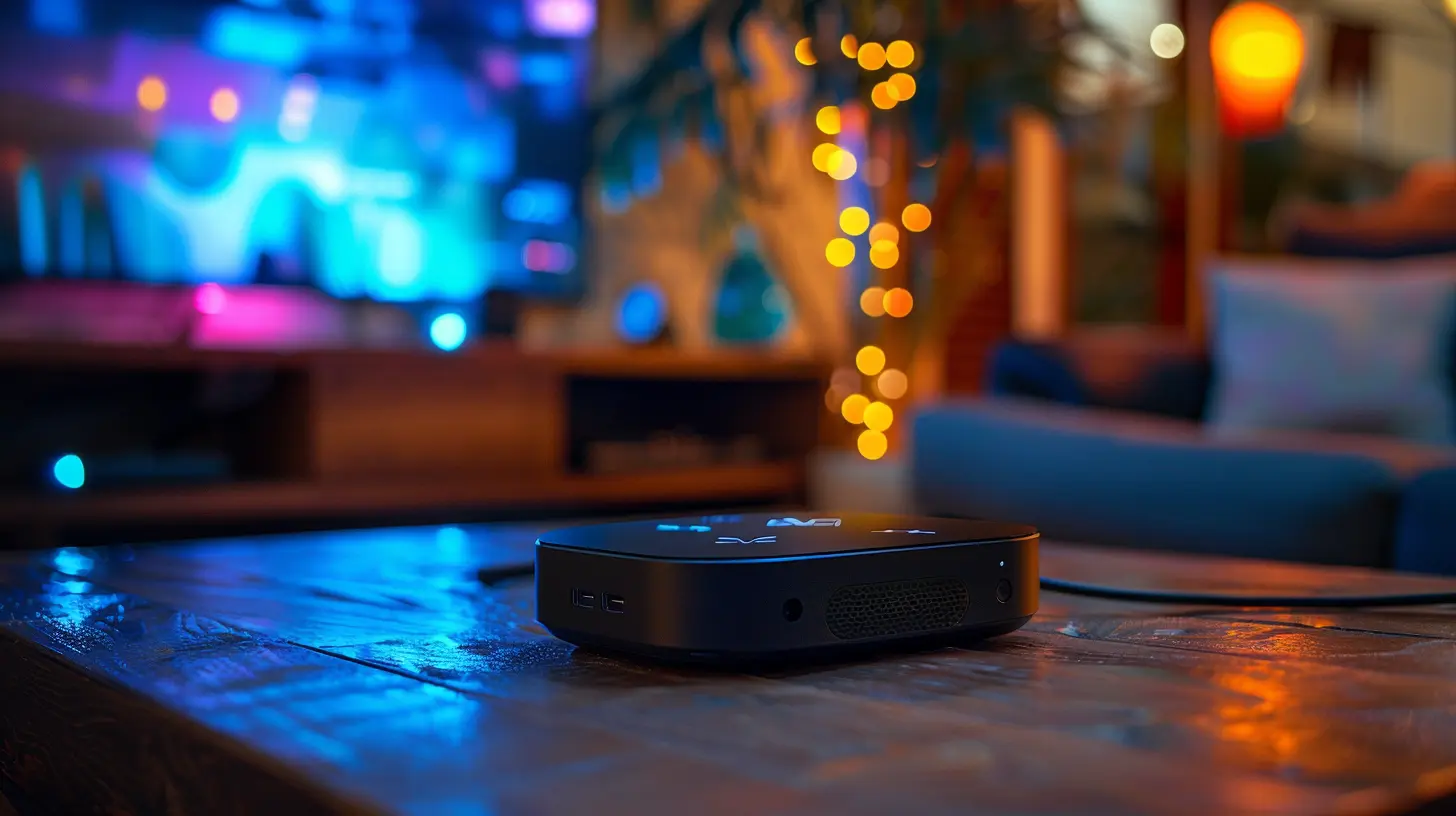Streaming Devices and VPNs: Unlocking Global Content
28 July 2025
Streaming devices have completely changed the way we consume content. Whether you're a Netflix binge-watcher, a Disney+ fanatic, or an Amazon Prime aficionado, there's no denying that streaming has become a huge part of our lives. But what happens when you want to access content that's not available in your region?
Enter the unsung hero of the streaming world: VPNs (Virtual Private Networks). If you've ever wondered how to unlock the full potential of your streaming device, you're in for a treat. In this article, we're diving deep into the world of streaming devices and VPNs, and how you can harness the power of both to access a treasure trove of global content.

What Are Streaming Devices?
Let’s start with the basics. Streaming devices are small, often stick-like gadgets that connect to your TV and allow you to stream movies, TV shows, music, and even games straight from the internet. You’ve probably heard of a few of the major players in this space like:- Amazon Fire TV Stick
- Roku Streaming Stick
- Google Chromecast
- Apple TV
- NVIDIA Shield
These devices are packed with apps for popular streaming services, like Netflix, Hulu, Disney+, and HBO Max. But, here's the kicker: depending on where you are in the world, the content available on these platforms can vary significantly.
Ever seen a show on Netflix in the US that isn’t available in the UK? Or maybe you tried to access an international sports event, only to be hit with that dreaded "Content not available in your region" message?
That’s where VPNs come into play.

What Is a VPN?
Let's break it down. A VPN (Virtual Private Network) is a service that allows you to connect to the internet through a private server, masking your real IP address and making it appear as though you're browsing from a different location.Think of it as a digital passport. Just like how a passport lets you travel to different countries, a VPN lets you “travel” to different parts of the internet. Want to watch a show that's only available in Japan? With a VPN, you can make it look like you're in Japan, even if you're sitting on your couch in New York.
By using a VPN, you can bypass geographical restrictions and access content libraries from all over the world. Sounds like magic, right?

Why Do You Need a VPN for Streaming?
Alright, so why should you care about using a VPN with your streaming device? Here are some of the key reasons:1. Unlock Geo-Restricted Content
The world of streaming is vast, but unfortunately, it's not always fair. Many streaming services have different content libraries based on your location. For instance, Netflix US has a different catalog than Netflix UK, and the same goes for services like Disney+ and Amazon Prime Video.With a VPN, you can virtually relocate to different countries and access content that’s otherwise unavailable to you. Want to watch a movie that’s only available on Canadian Netflix? No problem. Just connect to a Canadian server via your VPN, and voilà—you’re in.
2. Bypass Censorship
In some countries, access to certain streaming services or specific types of content may be restricted or blocked entirely. A VPN allows you to bypass these restrictions by routing your internet traffic through a server in a different country where access is unrestricted.This can be especially useful if you're traveling or living in a country with strict internet censorship, like China or Iran, where services like YouTube, Netflix, or even Google may be blocked.
3. Avoid ISP Throttling
Ever notice how your internet speed drops when you're streaming? That’s likely because your Internet Service Provider (ISP) is throttling your connection. Many ISPs intentionally slow down your internet speed when they detect large streams of data, such as when you're binge-watching your favorite series.A VPN encrypts your internet traffic, making it impossible for your ISP to see what you’re doing online. As a result, they won’t be able to throttle your connection because they won’t know you’re streaming at all!
4. Enhanced Privacy and Security
While the main reason to use a VPN with a streaming device is to unlock global content, there’s a bonus benefit—better online security. VPNs encrypt your internet traffic, protecting your data from hackers, snoopers, and even your ISP.So, while you're watching that exclusive international content, you can rest easy knowing that your personal data is safe from prying eyes.

How to Use a VPN with Popular Streaming Devices
Now that you know why VPNs are a game-changer for streaming, let’s talk about how to set one up with your device. It’s easier than you think!1. Amazon Fire TV Stick
The Amazon Fire TV Stick is one of the most VPN-friendly streaming devices out there. Many popular VPN services, such as ExpressVPN, NordVPN, and CyberGhost, offer dedicated apps for the Fire TV Stick, which you can easily download from the Amazon Appstore.Once installed, just sign in to your VPN account, select a server in the country you want to access, and start streaming.
2. Roku Streaming Stick
Roku doesn’t support VPN apps directly, but don’t worry! You can still use a VPN by installing it on your router. By doing this, all of the devices connected to your Wi-Fi network, including your Roku, will benefit from the VPN connection.Alternatively, you can share a VPN-enabled connection from your computer to your Roku device if router installation sounds too technical.
3. Google Chromecast
Like Roku, Google Chromecast doesn’t have native VPN support. But, you can work around this by setting up a VPN on your router or creating a VPN-protected hotspot from your computer.Once your Chromecast is connected to the VPN-enabled network, you can cast global content to your TV without any restrictions.
4. Apple TV
Apple TV also lacks direct support for VPN apps, but don’t let that stop you. Just like with Roku and Chromecast, you can install a VPN on your router or use a VPN-enabled hotspot. This way, your Apple TV will connect through the VPN, allowing you to access content from different regions.5. NVIDIA Shield
NVIDIA Shield is a powerhouse when it comes to streaming, and it also supports VPN apps directly from the Google Play Store. Simply download a VPN app, log in, connect to a server, and you’ll be enjoying global content in minutes.Choosing the Best VPN for Streaming
Not all VPNs are created equal, especially when it comes to streaming. Some VPNs are faster, more reliable, and better at bypassing geo-blocks than others. Here are some factors to keep in mind when choosing a VPN for streaming:1. Server Locations
The more server locations a VPN has, the better. If you want to access content from multiple countries, make sure the VPN offers servers in those regions. For instance, if you want to watch BBC iPlayer, the VPN should have servers in the UK.2. Speed
Streaming in HD or 4K requires a fast and stable connection. Look for VPNs that offer high-speed servers optimized for streaming. Some VPNs even have dedicated streaming servers that are specifically designed to avoid buffering and lag.3. Bypass Capabilities
Not all VPNs can bypass the firewalls and geo-blocks set up by streaming services. Netflix, for instance, is notorious for blocking VPNs. Make sure to choose a VPN that’s known for successfully bypassing these restrictions.4. Compatibility
Ensure that the VPN you choose is compatible with your streaming device. As mentioned earlier, some devices support VPN apps directly, while others require a more manual setup.5. No-Log Policy
Privacy is a big deal. Make sure the VPN you pick has a strict no-log policy, meaning they won’t keep any records of your online activity.
Best VPNs for Streaming in 2023
Here’s a quick rundown of some of the best VPNs for streaming in 2023:- ExpressVPN: Known for its blazing speeds and ability to bypass geo-blocks on services like Netflix, Hulu, and BBC iPlayer. It's also super easy to install on most streaming devices.
- NordVPN: Offers dedicated servers for streaming and is one of the most reliable VPNs for unblocking content worldwide. Plus, it has a strong focus on security with features like double encryption.
- CyberGhost: A budget-friendly option that still delivers great speeds and works well with major streaming platforms. It also has a user-friendly interface, making it great for VPN beginners.
- Surfshark: One of the more affordable VPNs, Surfshark allows unlimited simultaneous connections, making it perfect for large households with multiple streaming devices.
Conclusion: VPNs and Streaming Devices—A Match Made in Heaven
In today’s digital age, streaming devices have given us access to an incredible world of entertainment. But with the help of a VPN, you can truly unlock the full potential of these devices and access content from around the globe.Whether you're an expat missing your favorite TV shows from home, a sports fan looking to catch an international match, or just someone who wants to explore new content, a VPN is a must-have tool for any streaming enthusiast. So go ahead, grab your popcorn, fire up your streaming device, and get ready to explore the endless world of entertainment—globally unlocked.
all images in this post were generated using AI tools
Category:
Streaming DevicesAuthor:

Vincent Hubbard
Discussion
rate this article
1 comments
Josie Love
Unlocking global content? Please, it’s about time we stopped letting geo-restrictions dictate our binge-watching. With the right streaming devices and a VPN, your couch can be a passport to the world. Don’t just stream; globetrot from your sofa!
August 14, 2025 at 4:16 AM

Vincent Hubbard
Absolutely! With the right tools, we can break free from geo-restrictions and enjoy global content from the comfort of our homes. Happy streaming!


